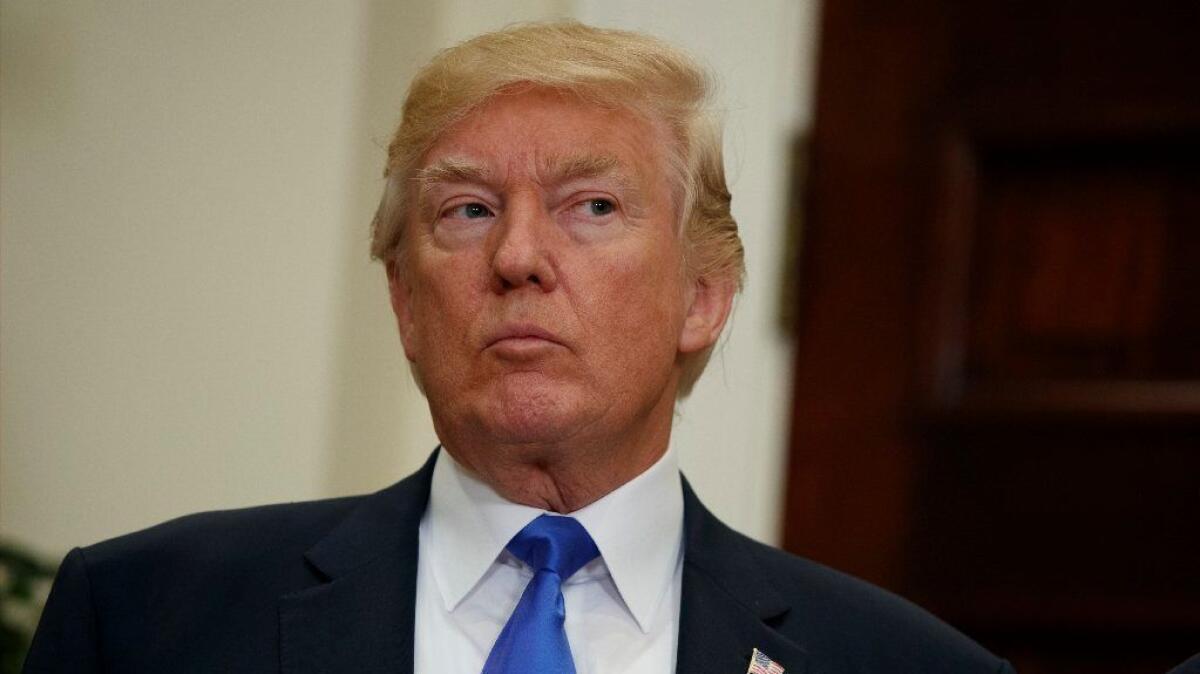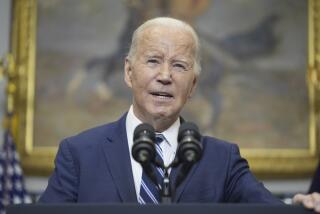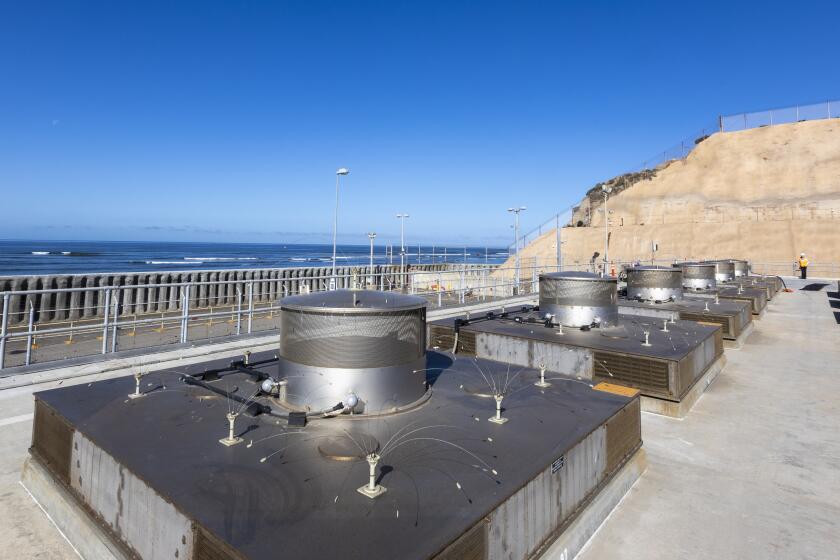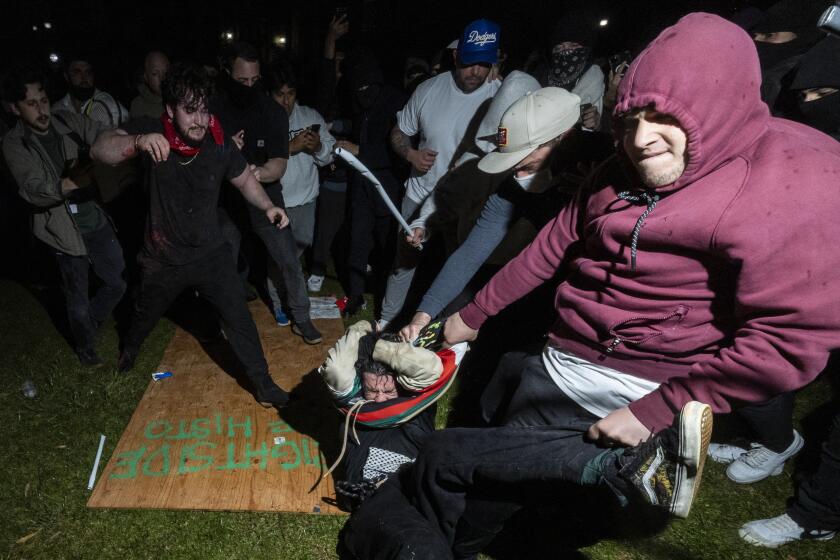Opinion: Like other presidents, Trump signs a bill with his fingers crossed

President Trump on Wednesday finally signed the Countering America’s Adversaries Through Sanctions Act, better known in Washington as the “veto-proof Russia sanctions legislation.”
Actually, the bill imposes economic sanctions not only on Russia — for aggression in Ukraine, arms shipments to Syria and meddling in last year’s U.S. election — but also on North Korea and Iran (for its ballistic missile tests and support for terrorism).
But, even as he approved the legislation, Trump insisted on issuing a “signing statement” registering constitutional objections to parts of it. (I know, you didn’t realize Trump was a constitutional scholar.)
For example, he asserted that two sections of the bill “purport to displace the president’s exclusive constitutional authority to recognize foreign governments, including their territorial bounds, in conflict with the Supreme Court’s recent decision in Zivotofsky vs. Kerry.”
The sections the president objects to state that the United States doesn’t recognize the acquisition of various territories by force or the Russian annexation of Crimea. Trump says he doesn’t disagree with those statements as policy, but he notes, absolutely correctly, that the Supreme Court has ruled that the Constitution gives the president, not Congress, the power to recognize foreign governments.
If the president thinks a piece of legislation encroaches on his constitutional authority, why not go down fighting?
That was the holding in the 2015 case of Zivotofsky vs. Kerry. Zivotofsky was Menachem Zivotofsky, an American boy born in Jerusalem in 2002, whose parents wanted the State Department to list his place of birth on his passport as “Israel.” The State Department refused, despite a law passed by Congress ordering it to do so at the request of a citizen born in those circumstances.
The justices ruled for the State Department, holding that the Constitution’s text and structure grant the president the power to recognize foreign nations and governments. And no president has yet recognized Jerusalem as part of Israel; the longstanding U.S. position is that the status of the city must be settled through negotiations.
The recognition issue wasn’t Trump’s only constitutional problem with the sanctions bill; he also found fault with a review process the law creates in case the president attempts to waive sanctions. “I nevertheless expect,” Trump said, “to honor the bill’s extended waiting periods to ensure that the Congress will have a full opportunity to avail itself of the bill’s review procedures.”
You might wonder why, if Trump had constitutional qualms about this legislation, he didn’t veto it. Even if Congress overrode the veto (as it certainly would have done), he would have struck a blow for principle.
That’s what President Richard Nixon did in 1973 when he vetoed the War Powers Resolution, a measure inspired by the Vietnam War that gave Congress more authority over the use of military force. Nixon said at the time that the bill imposed “unconstitutional and dangerous restrictions” on presidential authority.
But subsequent presidents have grown accustomed to signing legislation and then issuing signing statements that seemed to suggest that they might not be bound by parts of it.
For example, when President George W. Bush signed the 2005 Detainee Treatment Act designed to outlaw torture of suspected terrorists, he issued a statement saying that the executive branch would construe the law “in a manner consistent with the constitutional authority of the president to supervise the unitary executive branch and as commander in chief and consistent with the constitutional limitations on the judicial power, which will assist in achieving the shared objective of the Congress and the president . . . of protecting the American people from further terrorist attacks.”
Bush was widely criticized for his signing statements, which seemed to allow the president to have it both ways and undermine the finality of a presidential signature. In 2006 the president of the American Bar Assn., Michael S. Greco, warned: “We will be close to a constitutional crisis if this issue, the president’s use of signing statements, is left unchecked.”
But the practice continued into the administration of President Obama. For example, Obama repeatedly signed defense authorization bills that contained restrictions on closing the detention facility at Guantanamo or transferring inmates there to the U.S. But Obama insisted in signing statements that those provisions trespassed on his constitutional authority. In 2013, the Los Angeles Times editorial board criticized Obama for not having the courage of his convictions and vetoing those bills.
The same complaint can be made about Trump’s signing of the sanctions bill. If the president thinks a piece of legislation encroaches on his constitutional authority, why not go down fighting? Nixon did — but maybe that’s not the president Trump wants to be compared to just at the moment.
Follow the Opinion section on Twitter @latimesopinion and Facebook
More to Read
A cure for the common opinion
Get thought-provoking perspectives with our weekly newsletter.
You may occasionally receive promotional content from the Los Angeles Times.







